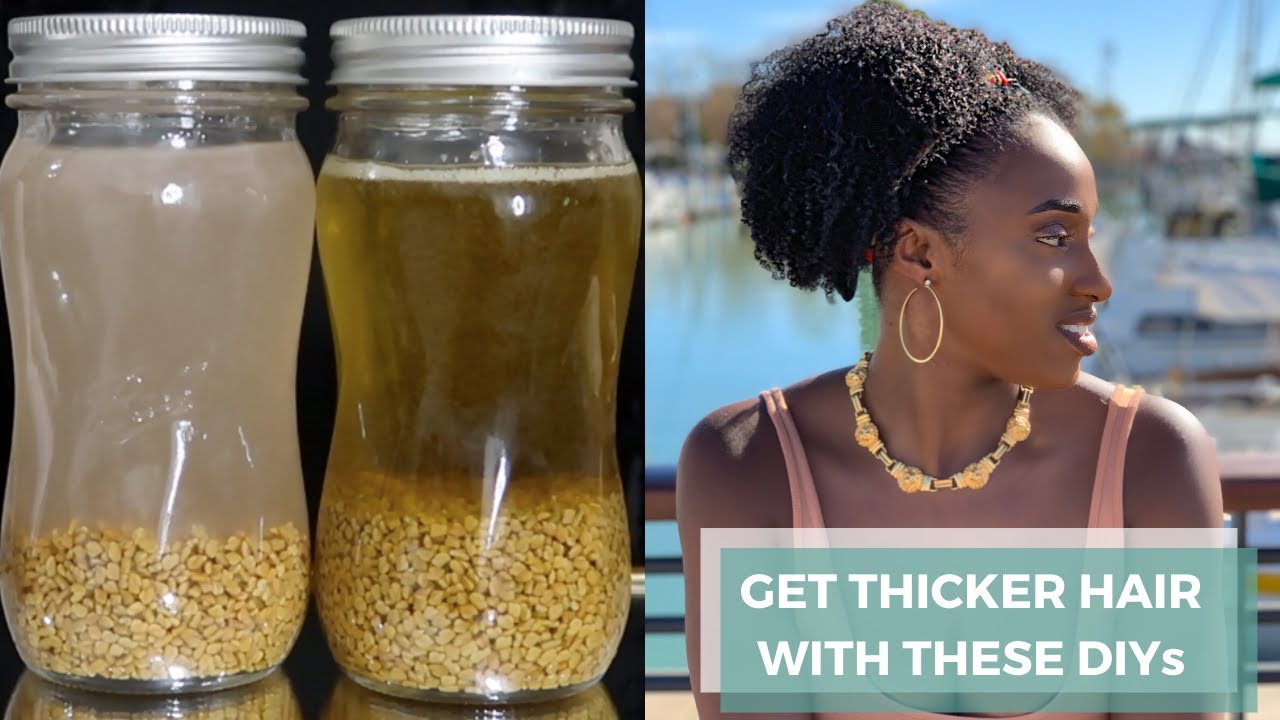
Few substances have a longer track record among cosmetics than fenugreek oil. Even if you haven’t heard of it before, people within the beauty industry have used fenugreek oil for thousands of years.
Several articles have claimed that fenugreek oil can help with hair growth, scalp health, hair thinning, and other scalp issues in recent years.
So what's the truth behind these claims, and what can this millennia-old medicine and cosmetic option do for your scalp and hair?
Table of Contents
The History of Fenugreek Essential Oil

We can trace fenugreek (i.e., fenugreek methi) back thousands of years to Ancient India and modern-day Iraq. Fenugreek methi was seen in Egypt, dating back to 3000 BC and 4000 BC in Iraq, making it one of the earliest medicinal plants globally.
What’s more, it was a plant that seems to have been used by commoners and royalty alike. Fenugreek seeds were found in Tutankhamun’s tomb, and both Hippocrates and Pliny the Elder attested to fenugreek’s powers once the plant spread to Greece, Rome, and the rest of the Mediterranean.
The eventual spread to Greece gave it its modern name in the English-speaking world, as “fenugreek” comes from the Latin “faenugraecum,” meaning “Greek hay.”
Whatever you call it, the plant was one of many cosmetic agents (home remedies in today's terms) dating all the way back to Ancient Egypt. It was mixed with water and other organic materials, baked in the sun, and applied to soften the skin and get rid of wrinkles.
It’s a conceivably replicable beauty mixture (and certainly a more alluring one than other Ancient Egyptian cosmetics, such as dried crocodile dung!).
Fenugreek’s legendary cosmetic powers don’t stop there. Stories of women in harems using it for breast enhancement may be prone to different degrees of objectifying and Orientalist exaggeration.
However, a 2010 study in the Indian Journal of Medical Research did indeed confirm that “fenugreek seeds provide a mastogenic effect resulting in enhanced breast size,” though it added that the estrogenic effects are still not known.
Meanwhile, it was an aphrodisiac in Ancient India and is alluded to in the Kamasutra, with some Indian sources echoing those breast enlargement claims.
On the other hand, fenugreek can be used for more healing and “enhancement.” Jews defending Jerusalem against Roman invaders mixed fenugreek with boiling oil and poured the solution down the city walls to deter the invasion.
In modern Egypt, it continues to be used in salads and it can be found mixed in with curries in India.
Before you gorge yourself on these and other dishes, however, you should be aware that doing so can cause you to put the “reek” in fenugreek, as eating excessive amounts can lead to foul body odor.
What Are the Benefits of Fenugreek Essential Oil?

In ancient times, fenugreek plants and seeds ("methi") were thought to treat a wide range of conditions, including bronchial infections, tuberculosis, wounds and sores, swollen glands, and skin irritation.
These claims were in addition to breast enhancement claims and other cosmetic benefits of hair growth and mitigating hair loss when used as hair oil. Although, what does modern science have to say about all of these claims?
For starters, those breast enhancement claims do have some substance to them. In addition to the 2010 study asserting that the plant can help enlarge breasts, a 2018 study published in Breastfeeding Medicine established that it could also help with lactation in breastfeeding women.
However, the underlying reasons why remain unclear.
Besides, 1800 to 2700 mg of fenugreek seed powder taken three times per day during the start of a period and then 900 mg three times per day for the rest of the next two menstrual cycles may help with menstrual cramps.
It is advisable to avoid using or consuming fenugreek if you are pregnant.
There is also a fair body of evidence to suggest that fenugreek can help with diabetes and blood sugar levels. Studies in 1988 and 2005 gave evidence of this.
However, a review of studies on fenugreek seeds in 2014 argued that “trials with higher methodology quality” were necessary for a more “conclusive” determination on its efficacy.
Another pair of studies in 2009 and 2010 found that fenugreek seeds can have a small but significant effect on appetite control, helping those looking to lose weight without being ravenously hungry.
Two more studies in 1993 and 1997 found that fenugreek can help lower cholesterol.
Finally, and most importantly for skin and hair care, studies in 2008 and 2013 helped affirm that fenugreek can be used to soothe inflammation. This would seem to go along with some of those anecdotes of this substance’s skin-soothing properties.
Does Fenugreek Oil Work for Hair Growth? What About Other Hair Care and Scalp Benefits?

1. Anti-Inflammatory Properties
As alluded to above, fenugreek oil has anti-inflammatory qualities, and that’s a big deal when it comes to proper skin and hair care. Few things can wreak havoc on your skin and hair more than inflammation.
Just as you wouldn’t be able to grow fenugreek plants in soil that is dry and lacks life-giving nutrients and moisture, the same holds true for your hair and scalp.
What’s more, inflammation is one thing that tends to snowball when not addressed. Fail to do something about scalp irritation today, and you may be looking at anything from dandruff to hair loss tomorrow.

Dandruff, in particular, can arise from a dried-out scalp. The inflammation and dried skin can cause follicles to become looser and thus more prone to fall out, along with an unfortunate flutter of dry skin flakes.
You obviously don’t want any of that to happen, which is why you’ll want to make sure to keep your scalp properly moisturized and smooth out any rough patches.
While it remains an open and largely anecdotal question how well fenugreek oil can do this, the fact remains that studies, as well as thousands of years of anecdotal evidence from different cultures, all seem to suggest that it is at least somewhat potent in this regard.
2. Antibacterial Agent

Bacterial infections are another potential cause of dandruff. Besides this, however, there are many ways bacterial infections can cause your scalp and hair problems, which is why it is essential to take preemptive action. Fenugreek powder contains saponins, which have antifungal and antibacterial properties.
3. Antioxidant Properties

If you have looked at any of the most popular diets over the past couple of decades, chances are you have heard about how antioxidants can help your health in a variety of ways.
One aspect of their powers that is not talked about as much, however, is how antioxidants can help with skin and hair care.
This stems from the fact that antioxidants can stave off free radicals, which are unstable molecules that, when stimulated by things such as UV rays or cigarette smoke, can cause skin or hair to age more rapidly.
You don’t want your skin to start to sag or your hair to start falling out prematurely, so it’s necessary to try and counteract free radicals, and one way of doing that is by employing antioxidants – and thankfully, fenugreek oil has plenty of them.
4. Adds Shine

For as important as it is to ensure that your scalp and hair are kept in good health, let’s be honest – we’ve also been fixated on the cosmetic side of things for thousands of years.
While we may not use the sometimes questionable substances of Ancient Egypt (though, to be fair, every age’s beauty fads have their ugly side), they were right about fenugreek.
Not only can it smooth and soothe your skin, but it can also add a nice bit of shine to your hair. If you’re looking for sleeker, chicer hair, this may be an easy way to inch toward it one fenugreek oil application at a time.
5. Strengthens Hair

Of course, before you can start thinking about having sleek, shiny hair, you first have to ensure that you have hair in the first place. This means making sure that your hair not only doesn’t fall out but that it is firmly rooted in your scalp.
Loose hair follicles are a ticking baldness timebomb you’ll want to diffuse sooner rather than later, and fenugreek oil can help you do just that.
This is partly because fenugreek oil is rich in iron and protein, both essential for strong, healthy shafts of hair. In addition to strengthening hair follicles, fenugreek oil and powder can also help repair damaged hair shafts.
6. Promotes Hair Growth

Here we are, one of the biggest reasons people look into hair care products in the first place. On the one hand, you should always view any products promising to regrow your hair with a healthy degree of skepticism.
On the other hand, there is reason to think that fenugreek oil and powder, when properly applied, may be able to help.
Chief among the reasons why this is the case is the fact that fenugreek oil is rich in not just iron and protein, but calcium, potassium, and vitamins A, C, and K. Vitamin A is essential for cell growth. So it is always a handy nutrient to have more of when trying to grow more hair.

Vitamin C is rich in the kind of antioxidants that, as stated, are necessary for preventing free radicals and thus keeping your skin and hair younger longer, thereby allowing it to grow better.
Vitamin K can help improve hair health in various ways, not the least of which is combating hair calcification, which can cause hair loss.
All of these factors combined create a series of prerequisites that, when taken together, can create conditions that can stimulate hair growth.
How to Use Fenugreek Essential Oil for Hair and Scalp Care
Fenugreek was mixed with other substances in ancient times, and it is obviously mixed in with other ingredients when using it for cooking. However, to get the most of it for skin and hair care, you’ll want to apply it topically.
The most common way of doing this is by creating a paste that can then be applied to your hair and scalp as a mask. To do this, you’ll want to mix a little fenugreek powder (or fenugreek hair oil) with a few tablespoons of water.
Some recipes include other ingredients, such as yogurt, honey, coconut oil, olive oil, lemon juice, and milk. You should ideally leave them to soak overnight to create a gelling effect.
Once your mixture is ready, you’ll want to apply it to your scalp and coat the strands of your hair (i.e., hair shaft). Then, leave it in for at least 10 to 15 minutes.
Once this time has passed, you can start to shampoo or condition your hair.
- Sandalwood Essential Oil Benefits for Hair
- Can You Put Aloe Vera Gel in Your Hair?
- How to Use Shikakai Powder for Hair
- Cactus for Hair Growth

Fenugreek oil is an interesting case as far as skin and hair care treatments go.
It has been attested to for millennia, making it one of the longest-serving medical treatments and beauty remedies in existence.
It is also a choice that can be consumed as a part of different dishes from all over the Eastern Mediterranean and the Middle East, though how much this can help your skin or hair is another matter.
This is just one of many different ways over the years, and you could argue that there is more scientific evidence for those breastfeeding and enhancement claims than hair care.
On the other hand, the skin care side of things has been well-verified, and that in itself is an essential part of hair care.
Combine that with the evidence that we do have, especially fenugreek seeds and leaves containing healthy amounts of vitamin A, C, and K, and the case for fenugreek oil as a skin and hair care option becomes clear.





